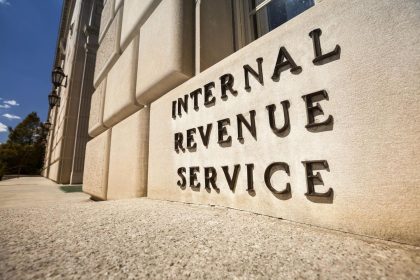By law, you are responsible for your own tax return. This is true even if you hire someone else to do them and it’s one of the contradictions at the heart of the personal filing system. On the one hand, lawyers and accountants dedicate their careers to understanding the tax code, and even they sometimes get it wrong. On the other hand, Congress and the IRS expect you (personally) to get it right every time, on time. So if you hire a tax preparer to help with this complicated process and they make a mistake, the IRS will hold you responsible for correcting that error. Here’s what you need to know if that happens.
A financial advisor who specializes in tax planning could help optimize your portfolio to lower your tax liability.
Don’t Panic in Case of Error
First things first, remain calm. When dealing with the IRS, the golden rule is good faith. Be honest, disclose all of your known income, and don’t invent expenses that didn’t happen. The tax agency does understand that people often make mistakes on their taxes, so most punitive measures are generally off the table as long as they don’t think you’re deliberately lying to them. In particular, hiring a tax preparer is generally considered a per se indication of good faith on your part (it’s called “acting on the advice of counsel” among lawyers).
The agency will still bill you, including for any associated interest and fees, but as long as you aren’t committing deliberate fraud they’re unlikely to impose serious fines and you won’t be arrested. The IRS will even typically work with you on a structured payment plan if you can’t pay everything all at once.
When to File an Amended Return
There are a number of different ways that a tax error can crop up. If you discovered the error before receiving a notice from the IRS, then you will need to file an amended return.
An amended return is an updated filing that corrects some material mistake. It’s particularly likely that you will want to file an amended return in cases where you overpaid your taxes, since that means you’ll be getting money back.
Regardless, to make an amended return you will file form 1040-X with the updated and corrected information. You will pay any additional amount that you owe, or get a refund for any amount you overpaid once the IRS accepts the new numbers. Typically, you can file an amended return for up to three years after filing the original return, or up to two years after you paid the tax, whichever comes later.
Now, in all cases, when your tax preparer makes a mistake you will still be responsible for any underpayment. As discussed below, you can pursue reimbursement for any penalties and costs caused by your tax preparer’s mistake, but you can’t get them to pay the tax bill itself.
Correction Letters and Audits

If the IRS discovered the error, you will usually receive one of two responses:
- a correction letter
- an audit notice
In most cases of simple error the IRS will send a correction letter. This is a notice that the IRS believes you accurately represented your finances, but either made a miscalculation, left something out by accident, or misapplied the tax code. In the correction letter the IRS will state what they believe you owe, along with any applicable interest and fees.
If you receive a correction letter, review your taxes. For small amounts, it may be easiest to simply make payment. Otherwise, if you still have confidence in your tax preparer, ask them to review the filing. If you think they are unreliable, ask a new accountant to conduct the review. From there, you will either make payment if you think the IRS is right or ask your paid preparer to discuss the matter if you think the IRS is wrong (you can also contact the IRS directly yourself if you did your own taxes).
In cases of more serious error, the IRS may send an audit notice. (Take note: Some random audits are still conducted but those are less common.) Generally, the agency does this when it finds a problem with your financial information. That is, it has reason to doubt the income, expenses, or other substantive facts that you claimed in your tax filing. To correct this, the agency may review additional documents such as your receipts, bank accounts and other documents to compare them with your tax forms.
If you receive an audit notice, it’s generally wise to speak with a tax professional immediately. As above, either use your existing tax preparer or find someone new depending on how much confidence you still have in their services. You might be able to resolve this issue by filing an amended return, but audits are very case-specific and best resolved with professional advice.
What to Do in Case of Serious Error
While rare, occasionally your tax preparer may introduce a serious error into your filing. When this happens, it can be important to move quickly.
Serious errors can cost you a lot of money, such as the expenses involved with a lengthy audit or the penalties involved with the appearance of impropriety. If this has happened as a result of your paid tax preparer’s mistake, you don’t want to get stuck with the bill.
If you believe that your tax preparer’s mistake was inadvertent, rather than intentional, speak with them first. Ideally, you want them to voluntarily correct the mistake and reimburse you for any costs involved.
If your tax preparer is not willing to help you correct the error, or if you suspect misconduct, then immediately speak with another tax professional. Work with the IRS and your new tax pro to correct the error and try to negotiate down any fines or penalties.
From there, you have two remaining issues to resolve:
- First, in the case of misconduct or serious mistake you can (and likely should) report your tax preparer to the IRS. You will use forms 14157 and 14157-A, and the IRS may then take steps to penalize the tax preparer or revoke their ability to act as a paid preparer.
- Second, if this mistake cost you a lot of money you can speak with a lawyer about suing your tax preparer. This is a significant undertaking, so only pursue a lawsuit if very large amounts of money are involved, but at the same time don’t shy away from the fact that you are likely entitled to reimbursement.
Bottom Line

If your tax preparer makes a mistake, you are responsible for making any corrections and remaining payments. How you deal with this depends entirely on the scope and nature of your tax preparer’s mistake, and on the response it generates from the IRS.
Tax Preparation Tips
- If you want to figure out how much you could owe in taxes, SmartAsset’s free income tax calculator can help you get an estimate.
- A financial advisor who specializes in tax planning can help optimize your investments and retirement plan to minimize taxes. Finding a financial advisor doesn’t have to be hard. SmartAsset’s free tool matches you with up to three vetted financial advisors who serve your area, and you can have a free introductory call with your advisor matches to decide which one you feel is right for you. If you’re ready to find an advisor who can help you achieve your financial goals, get started now.
Photo credit: ©iStock.com/elenaleonova, ©iStock.com/Dean Mitchell, ©iStock.com/vorDa
Read the full article here

















